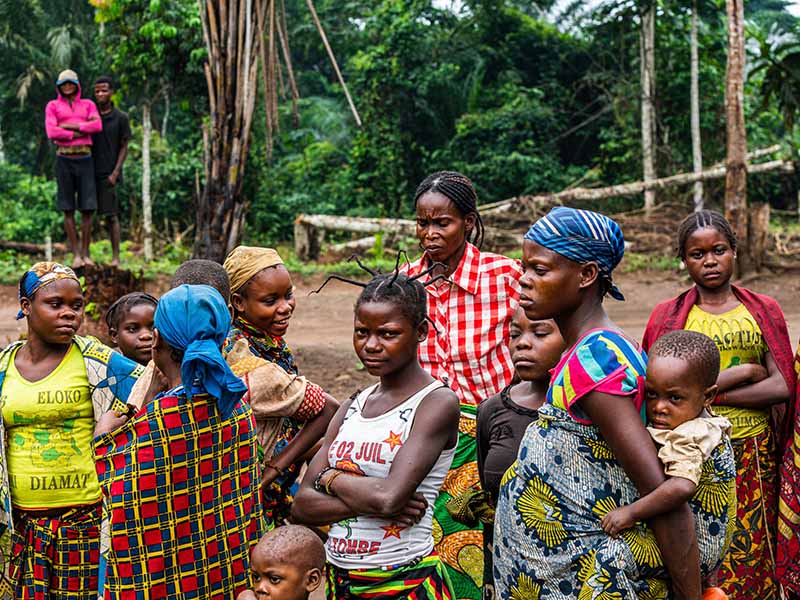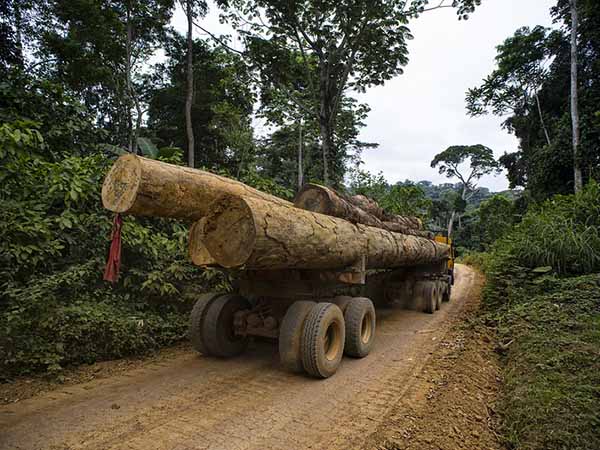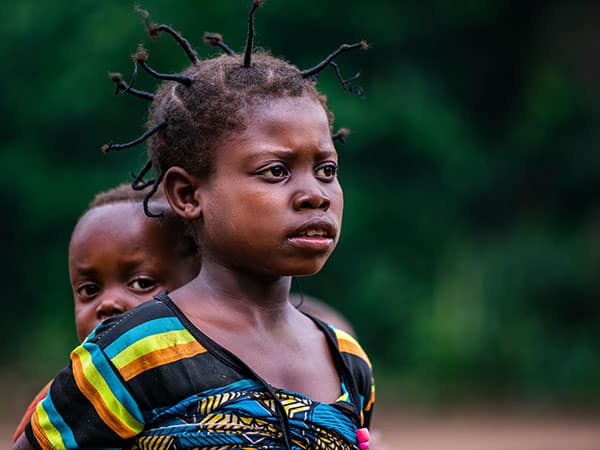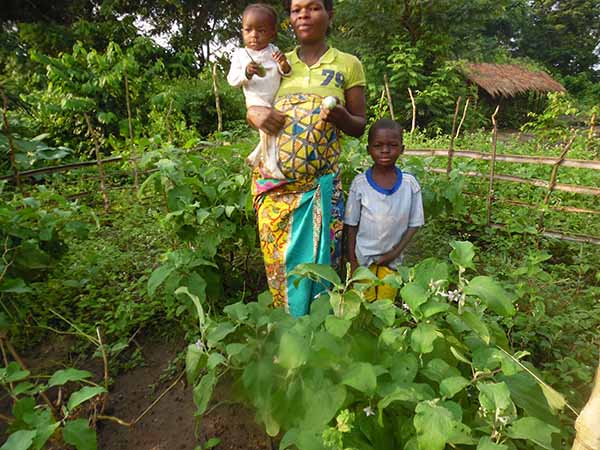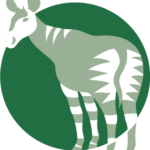
Congo Basin
Rights
Securing the rights of forest peoples to remain on their territories and defend them from threats is fundamental to forest protection in this region. Despite this, initiatives to protect forests peoples’ rights to land, resources and self-determination are patchy across the region.
Lack of secure land tenure makes it possible for companies (and governments) to claim that land is ‘available’ for ‘development’, making large swathes of intact forests, rivers, wetlands and lakes – and their inhabitants – vulnerable to destructive activity.
Our programme empowers forest peoples in the DRC and Cameroon by:
Participatory mapping of ancestral territories, including identification of important ecosystems, wildlife and sacred sites.
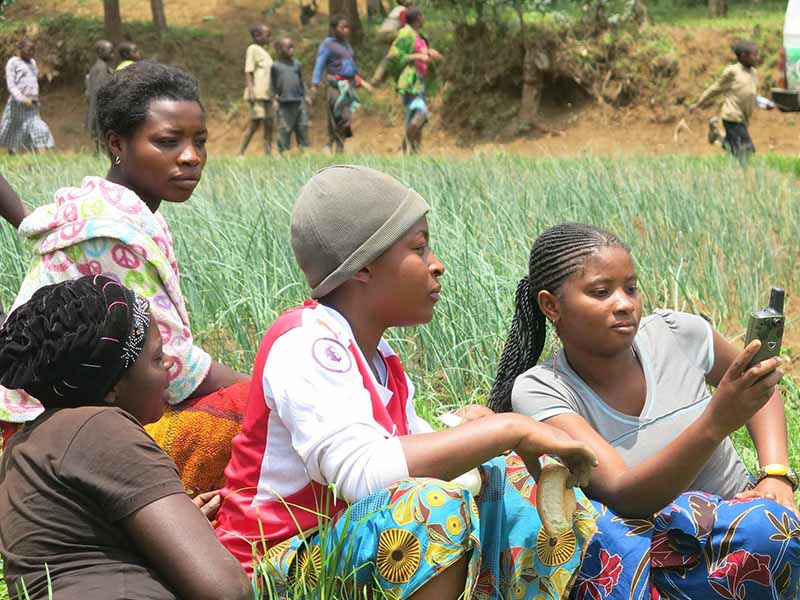
Carried out properly, participatory mapping is not simply about mapping “land rights”, but creates a permanent record of peoples’ communal relationship with, and responsibility to defend, their forest: for instance, mapping sacred sites, trees or rivers that are important for wildlife or cultural practices.
Supporting forest peoples to revive and pass on their knowledge to younger generations about how to care for their territories.
Greater awareness and understanding of legal rights is the first step to enable forest peoples to better defend their territories and successfully advocate against destructive development projects.
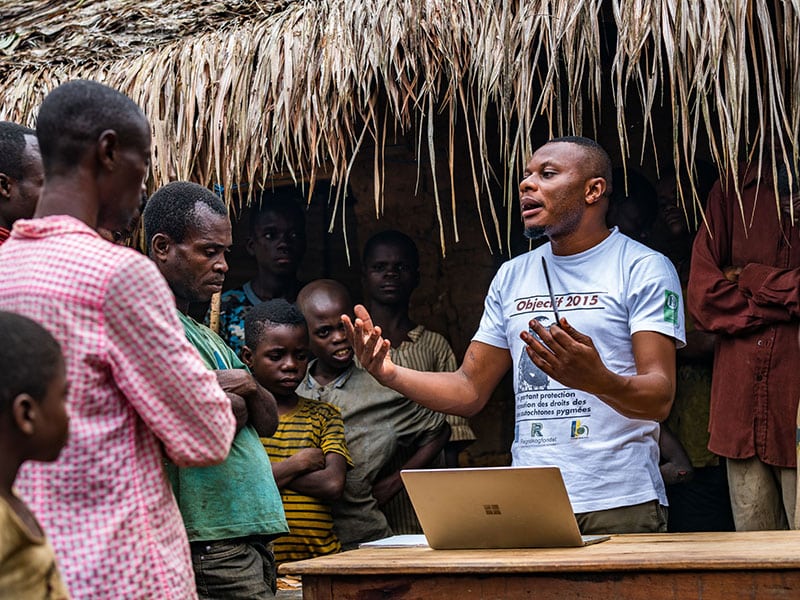
Reforming policies to recognise forest peoples’ rights, the connection that they have with nature and the role they play in protecting it.
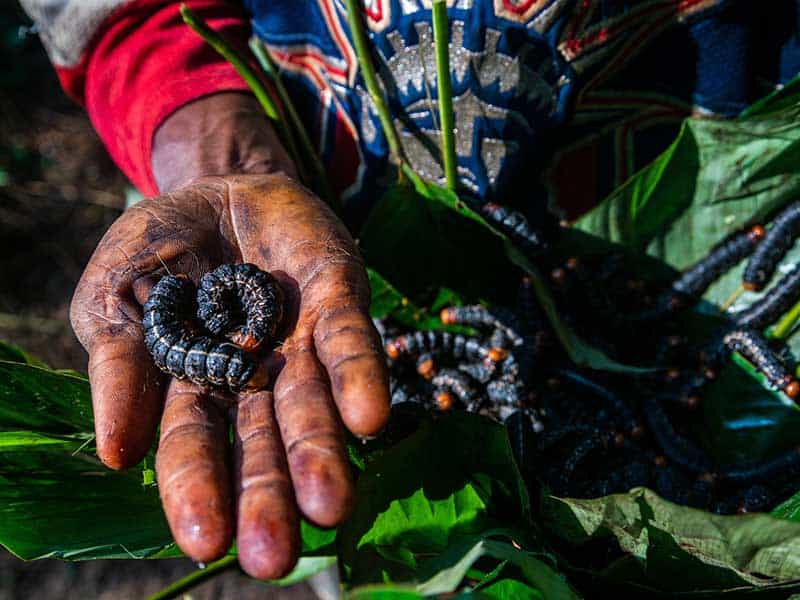
These roles and rights need to be recognised and respected across the board, for instance within mining policies, energy policies and economic policies.
* Images (L to R): Réseau Cref; Chris Scarffe; Chris Scarffe
“I began to understand that the centre of conservation was people when many conflict resolution processes started in the national parks. People were being arrested for poaching and claiming their land, because their land had been used for the national park. After that, I understood that people were central for what we were trying to do. Land management should not only serve nature, but it should also enable communities to use their land sustainably. From that moment on, we decided to take a people-centred approach, to listen to their requests and to find out how not to put them aside, but to take their needs and the needs of the protected area into consideration. You cannot separate the two.”
Bihini Won wa Musiti Jean, Congo Basin Affiliate, see interview
Promoting forest peoples’ rights
Partner Profile: Dynamique Des Groupes des Peuples Autochtones (DGPA)
Dynamique des Groupes des Peuples Autochtones (DGPA) is a network of around 45 organisations, including indigenous forest peoples’ groups, working to secure the rights of indigenous peoples, as well as improve recognition of the role that they play in protecting forests and associated biodiversity. DGPA supports forest peoples to remain on and defend their ancestral territories and to revive and protect their ways of life and traditional environmental knowledge. Synchronicity Earth has supported DGPA since 2014 across a range of programmes.
In 2018, our support contributed to DGPA successfully promoting the formal adoption of an Edict in Mai Ndombe, the first in the DRC, recognising the rights of the indigenous Batwa. As a result, DGPA estimates that over 10,000 km2 of forest should be protected from destructive logging and agricultural activities as it will now fall within Batwa territories. Mai Ndombe has long been considered to have extremely high levels of discrimination against indigenous peoples, but now it acts as a pioneer for indigenous rights in the DRC. We are supporting DGPA to ensure proper implementation of the Edict.
“The indigenous Batwa people, thanks to their wisdom and through their indigenous knowledge, have known how to preserve these forest ecosystems of the great Congo Basin.”
Patrick Saidi, Dynamique des Groupes des Peuples Autochtones

